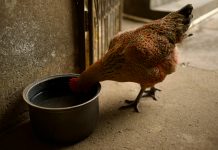Entomology – the scientific study of insects – is a fascinating but lesser-known branch of biology. With its broad range of applications, it’s becoming increasingly important for self-sufficient homesteaders, farmers, gardeners, and all types of off-grid living practitioners to gain an understanding of entomology and understand how this knowledge can benefit their endeavors.
This post will explore what entomology entails, why it’s so vital for modern life, and how it can help you develop a better relationship with your land or garden space. From identifying species to monitoring crop pests and planting beneficial bugs in your backyard, insect science has it covered!
We’ll dive into the world of insects’ roles within ecology; talk about sustainable practices and biopesticides that don’t harm beneficial species; discuss humane ways to trap rodents without using poison bait; as well as extol techniques from Integrated Pest Management (IPM) strategies: all aimed at optimizing perseverance with nature on our terms … and more!
So grab your magnifying glass along with some curiosity–it’s time to investigate Entomology 101 together!
What is Entomology and why is it important to study insects
Entomology is the scientific study of insects, a group of creatures that make up the majority of life on Earth.
Insects play a crucial role in ecosystems around the world, serving as pollinators, decomposers, and prey for other organisms. By studying insects, entomologists can gain a better understanding of the complexity and diversity of these vital ecosystems.
Additionally, insect research has many practical applications in fields such as agriculture, medicine, and pest control. From identifying new species to developing sustainable farming practices, entomology offers endless opportunities for advancement and discovery.
Therefore, investing in the study of entomology is not only fascinating but also essential for maintaining the health and stability of our environment.
The Different Types of Insects and their Unique Characteristics
Insects comprise the largest group of animals on Earth, with over one million known species. From the tiniest ant to the massive atlas moth, insects come in all shapes and sizes, each with their unique characteristics.
Some, like bees and butterflies, are known for their colorful wings and important role in pollination. Others, like the praying mantis and ladybug, are predators that control pest populations.
From their ability to camouflage themselves to their speedy movements and adaptive behavior, insects are fascinating creatures that play a significant role in our ecosystem.
Understanding their different types and unique characteristics is the first step in appreciating their importance and diversity.
How Entomology Impacts Agriculture and Human Health
Entomology, the study of insects, has a significant impact on agriculture and human health. In agriculture, entomologists work to find ways to control insect populations that feed on crops, ensuring that farmers are able to produce enough food to feed the growing population.
Additionally, they study the ecology of insect communities, determining how insects interact with the environment and each other.
When it comes to human health, entomologists play a crucial role in controlling the spread of diseases carried by insects, such as malaria, Zika, West Nile virus, and Lyme disease.
By understanding the behavior and ecology of insect vectors, they can develop strategies to prevent their transmission, ultimately helping to save lives.
Therefore, the field of entomology continues to be a crucial component of the agriculture and public health sectors, as we strive to sustainably produce our food and protect ourselves from harmful insect-borne diseases.
Exploring the Role of Insects in Nature
Insects play a vital role in nature – from pollinating plants to breaking down organic matter. Without them, many ecosystems would collapse.
Bees, for example, are responsible for pollinating up to one-third of our food crops. Ants help aerate the soil and recycle nutrients, while termites break down fallen trees and other organic matter, returning the nutrients to the soil.
Insects are also a crucial food source for many other animals, from birds to amphibians to other insects. Insects may sometimes be seen as pests, but they are vital components of healthy ecosystems. However, pests like wasps can become a serious nuisance, especially around homes and outdoor spaces. In such cases, it’s best to contact pest control experts who can safely handle infestations and provide clear pricing options.
As such, it’s important that we work to conserve and protect their habitats and ensure that they continue to play their crucial role in our world.
Examining the Impact of Pesticides on Insect Populations
Pesticides have been widely used since the 1940s to protect crops from insects and other pests. However, recent studies have shown that the use of pesticides has led to a significant decline in insect populations.
This is a cause for concern as insects play a vital role in pollination and other ecosystem functions. Pesticides are designed to kill insects by targeting their nervous systems.
However, the unintended consequence is that they also affect other non-target species, such as bees and butterflies. The decline in insect populations is a complex issue that requires a multidisciplinary approach to address.
It is essential to understand the impact of pesticides on insect populations to develop effective strategies for sustainable agriculture while protecting the environment.
You should also watch out for signs of pest infestations inside your home. If you discover bed bugs in your home, you may need to contact ABBP Services.
Investigating Scientific Research Related to Insects
Insects are some of the most fascinating creatures on earth, and investigating scientific research related to them can lead to some truly remarkable discoveries.
Whether it’s studying the behavior of bees, the intricate patterns on butterfly wings, or the social structures of ants, scientific research related to insects provides a wealth of information about the natural world.
Through careful observation and experimentation, researchers are uncovering new insights into the ways that these tiny creatures interact with their environments, and how they have evolved to survive and thrive in a variety of habitats.
As we continue to learn more about insects and their fascinating biology, we may discover new clues about the complex interconnections that make up our planet’s rich and diverse ecosystems.
Entomology is the scientific study of insects and their relationships to other living organisms, their habitats, and the environment. As such, it can often tell us a great deal about the health of both the planet and its inhabitants. Insects play a key role in agriculture, human nutrition, medicine, recreation, and more—areas in which entomology can have an immense impact. Through this branch of science, we can explore the extraordinary diversity of life forms among insects while also investigating some of society’s larger questions regarding changing insect populations, pesticide pollution, and so forth. Entomological research will continue to be essential to our understanding of the natural world around us. For those that believe even small creatures should be afforded respect and attention, entomology is an important way to do just that.













